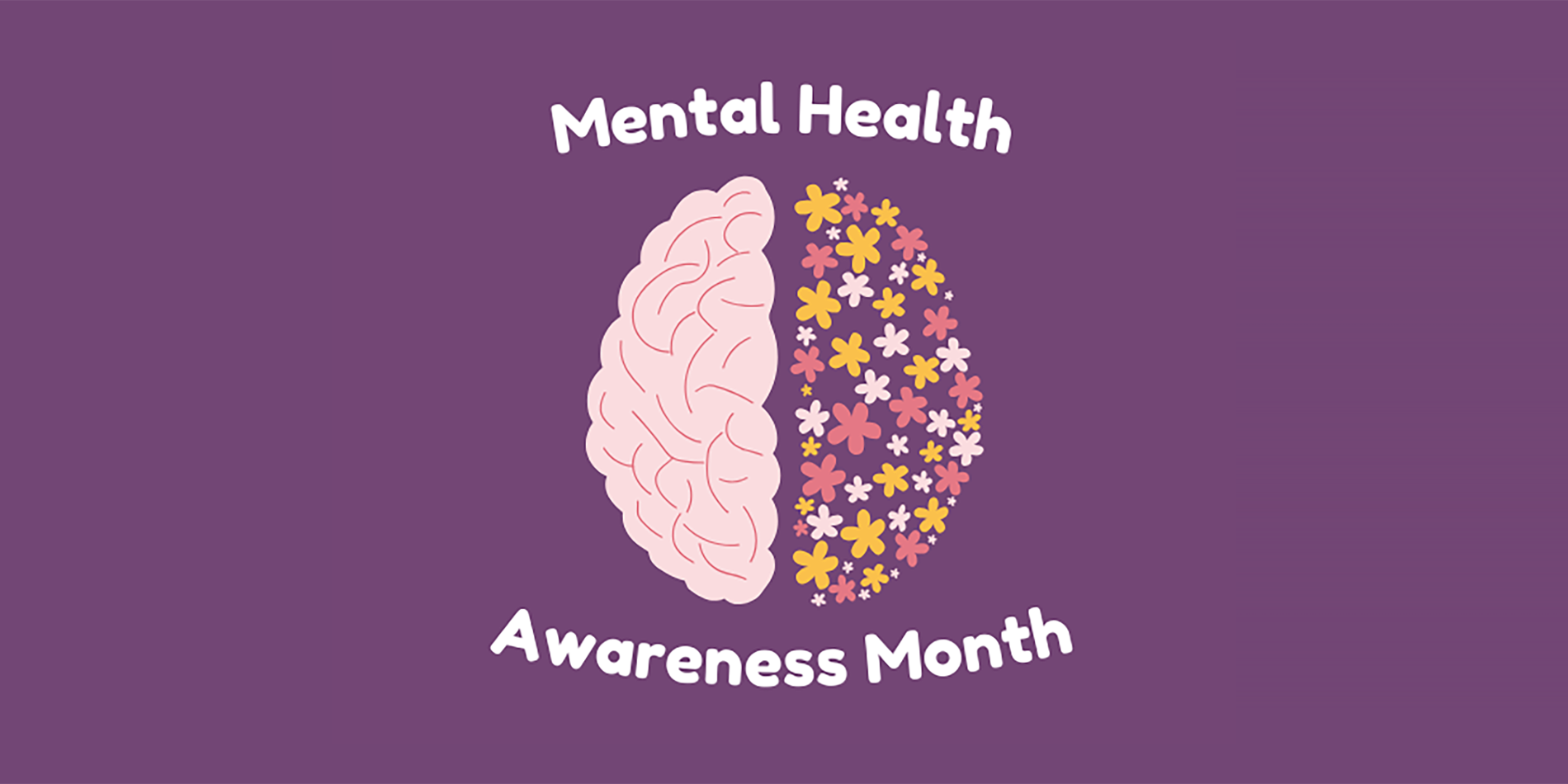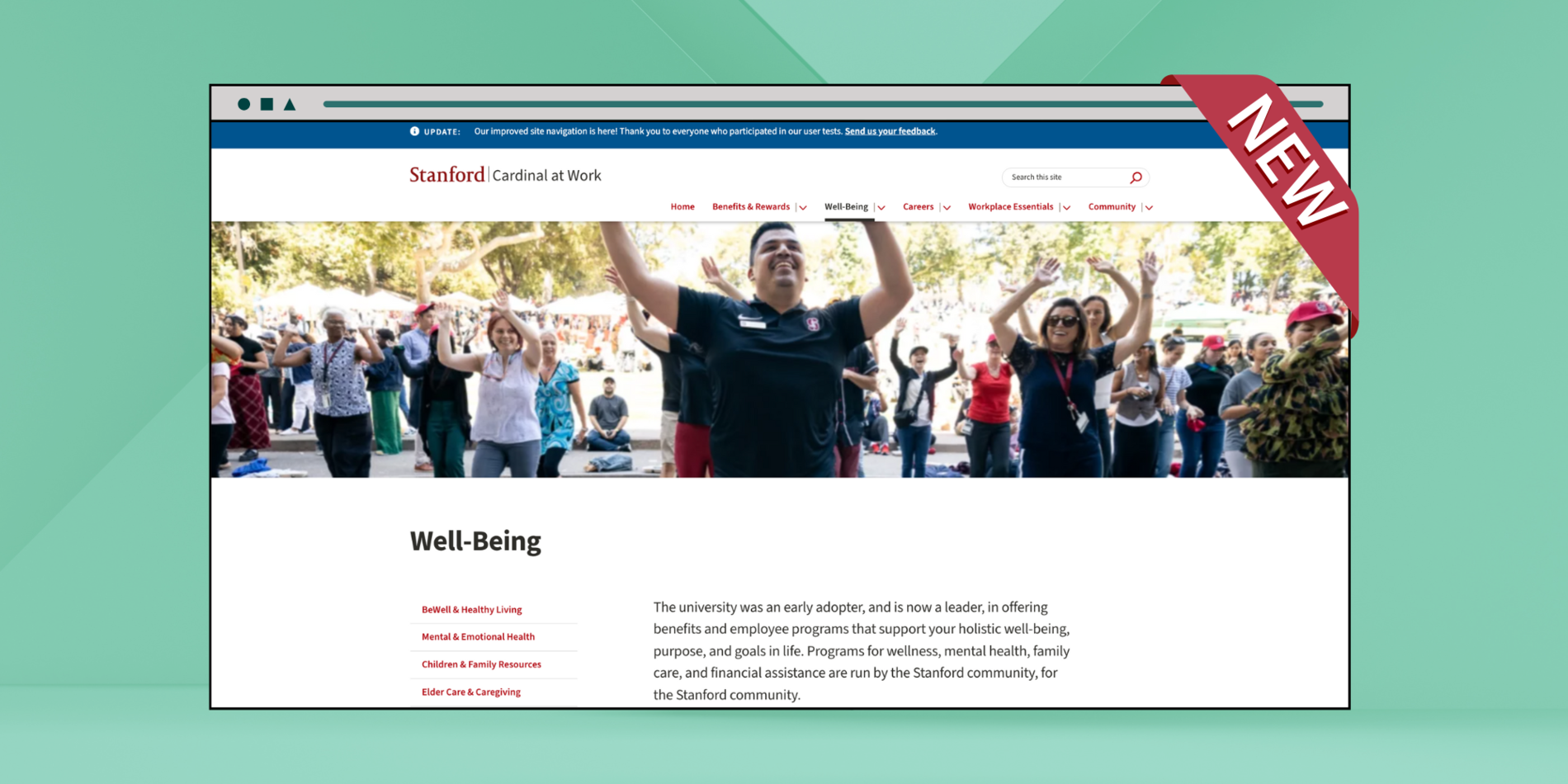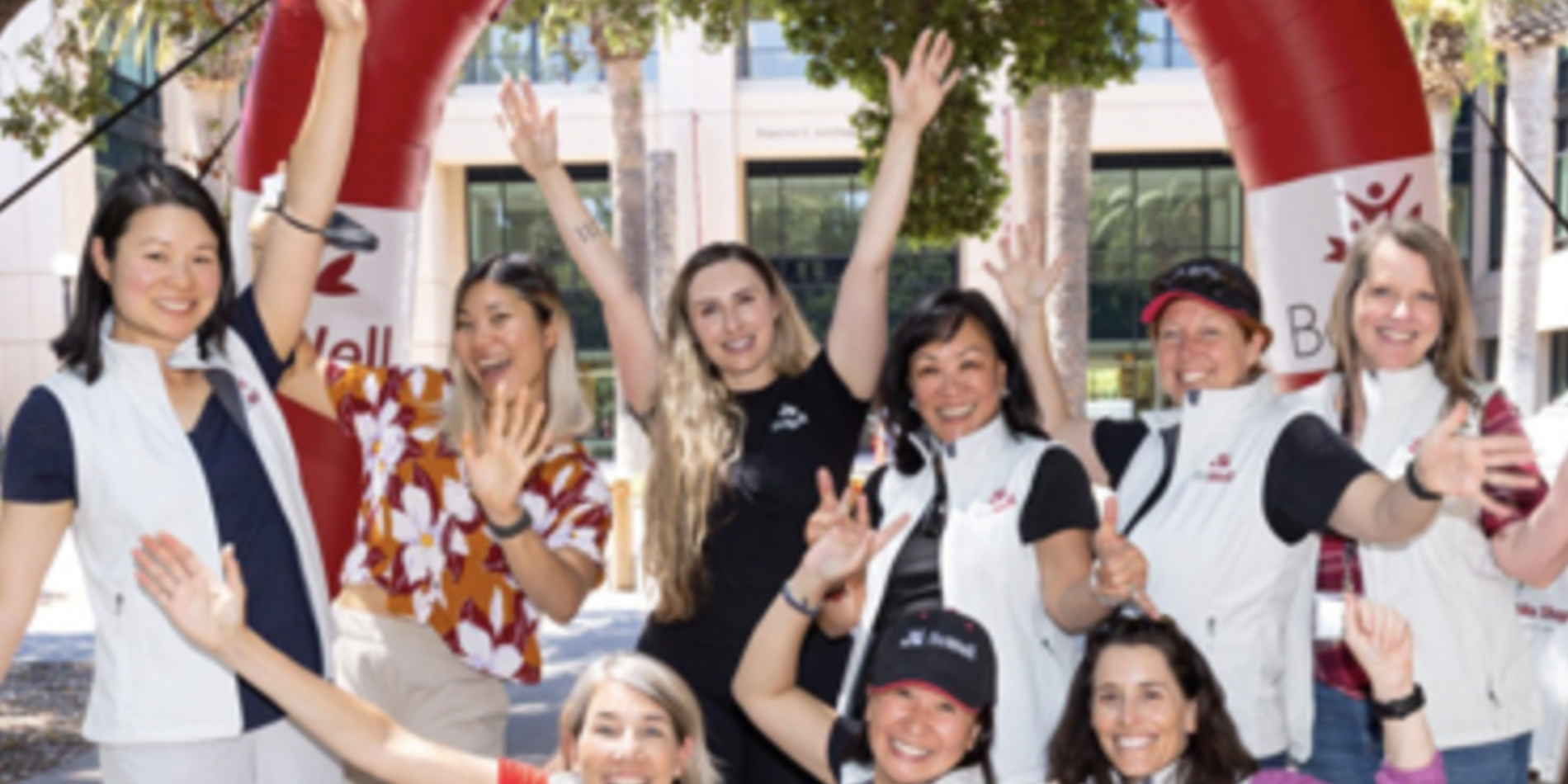Mental Health Awareness Month: When was the last time you checked in with yourself?

In recognition of Mental Health Awareness Month, Cardinal at Work sat down with Rosan Gomperts, director of Stanford’s Faculty Staff Help Center and a licensed clinical social worker, to discuss emotional and mental well-being and ways individuals and teams can support each other to create a more connected Stanford community.
Cardinal at Work: In our post-pandemic recovery, what are you seeing as the common themes and challenges our employees are navigating, and how are those struggles intersecting with their work?
Rosan: The pandemic and all that has been going on nationally and internationally seem to have impacted many people with a sense of anxiety about the future. This is not uncommon as anxiety is often fueled by worries about the past or future, but there seems to be an uptick in the number of people who are seeing us for the first time. Meaning, that they have not sought out counseling before and are coming in with varying levels of anxiety. This anxiety is also impacting kids and teens, so many working parents are trying to help support their kids in the same way that they are trying to find support for themselves.
The other thing that is different from before the pandemic is how and where people work. While most people seem to really appreciate hybrid work (those who can work hybrid), for some, there is a loss in the sense of community or really getting to know their co-workers. There is a lot of research and articles about the loneliness that many people feel, some have even termed it a ‘loneliness epidemic.’ One does not have to live alone to feel lonely or not as connected to a community as one would like to feel.
Cardinal at Work: What tips do you recommend for those who are struggling with anxiety or loneliness?
Rosan: For anxiety, it is great to come in and talk with a professional. It doesn’t mean that there is something wrong with you, it means that you need some additional skills to cope with what might be new feelings. Things that seem to help the most for people to feel less anxious and more grounded include:
- Trying not to scroll too much on social media. It seems to be generally bad for our mood, so try to set some limits and see if you can stick to them.
- Trying not to over consume the news. There is a way for most people to understand what is going on generally, without spending too much time reading or re-reading articles that are upsetting.
- Having ‘go-to rituals’ that work for you. That might be taking a walk outside, doing some deep breathing, stretching and moving your body. Just for a few minutes can shift one's experience.
- Practicing good self-talk. Instead of following our mind into ‘worst case scenarios’ try to be aware and remind yourself that following that path makes you feel worse and often the things we worry about do not happen.
- Get involved in causes that feel important to you. For many people who are worried about particular things — like climate change, for example — getting involved can help people feel that they are doing what they can. And, getting involved can have the added bonus of connecting with like-minded people.
For loneliness, here are some things to consider:
- Recognize you are NOT alone.
- Try new things! Loneliness can go along with feelings of sadness and we can get stuck in ruts—not trying new things. In fact, people often feel much better taking a few first steps, including:
- Registering for a Meetup group. Meetup (the social media app) was developed to help people connect who like to do the same things — hiking, board games, watching movies etc.
- Taking an in-person class to learn something new
- Joining an in-person book club
- Consider taking risks around sharing things about yourself. No question that it can be hard to ”‘make new friends” as an adult. Some of that has to do with feelings of uncomfortableness, not knowing how much to share, etc. but taking some risks, when you feel comfortable, can really help.
Cardinal at Work: Are there tactics leaders and managers can take to be supportive?
Rosan: I think for leaders and managers the most important thing is to pay attention to the folks that work for and with them. Be a good listener and ask questions to understand what might be going on for different employees.
It is also really helpful for managers to help with connections among staff. This can happen by opening up staff meetings with a question for people to respond to or integrating fun ways for people to know a little bit more about each other. Things like:
“If you really knew me, you would know….” or, “If you were an animal, what kind would you want to be and why?”
Also, if there is something going on that you feel it would be helpful to talk to someone at the Help Center, you can always request an appointment through our Request Appointment form.
We are happy to offer talks on “Taking Care of your Mental Health” and have received good feedback about having us at staff meetings to remind folks to check in on themselves and others. If you are interested in having us facilitate this type of conversation, please complete our Department Consultation form.
Cardinal at Work: Are there upcoming opportunities for employees to consider attending to check in with themselves?
Rosan: Stanford has many ways for people to connect with each other. If you live close enough to campus, it’s great to take classes through the BeWell program and Stanford Recreation. Even online classes can be helpful, so definitely take advantage of all that Stanford has to offer you, including professional development courses and Continuing Studies. Seeing the same people for a month or a quarter during a class can really help folks feel more connected. Even online classes can be helpful, so definitely take advantage of all that the BeWell program has to offer.
The Faculty Staff Help Center offers discussion groups each month for the LGBTQ+ community, managers, faculty, and African American/Black and Caribbean staff. We also offer quarterly meetings for the Asian Staff Forum.
We are always happy to hear about what might be helpful for people connecting in the Stanford community with regard to discussion groups, so get a hold of me if you have an idea!
And, make sure you know all the benefits and resources for you and your family. If you are in a university-sponsored health plan, Meru Health offers a free online program to support mental well-being including anxiety, stress, and depression. If you are outside of California and looking for some mental health support, the university offers SupportLinc for remote employees. Also, if you have children under 18 who need support, make sure you are aware of the benefits through Brightline.
Last but not least, stop by the Wellness Fairs taking place in Redwood City and on the Stanford campus in May. The Faculty Staff Help Center and our benefits vendor Meru will have a table so stop by and ask our staff your questions.
Upcoming Opportunities to Build Connection and Check in with Yourself
May 8 & 21: Wellness Fair at Stanford Redwood City and Stanford campus. Learn how you can participate remotely.
May 22: WorkLife Office and Parent’s Place host “How Smartphones and Social Media Affect our Children’s Mental Health”
Faculty Staff Help Center (FSHC) Consultation and Discussion Groups:
- Managers may request a Department Consultation for FSHC to facilitate a discussion
- Employees can learn more and register for a monthly discussion group
Get Connected with Your Community: Log into the Cardinal at Work Cares Community Opportunities Platform to learn about ways to get involved in causes that are important to you.
Get Connected with Colleagues: Review the group list on Cardinal at Work to join a professional, personal, or cultural group.



